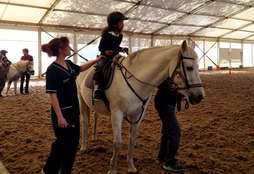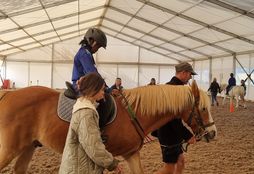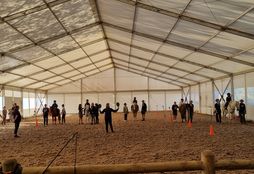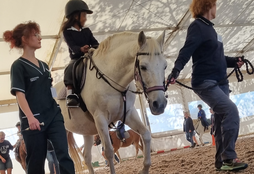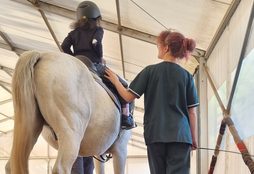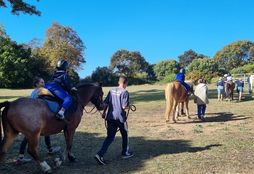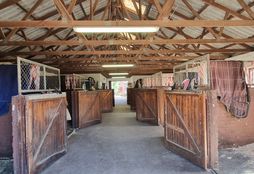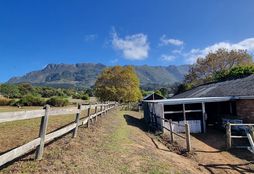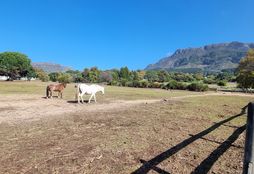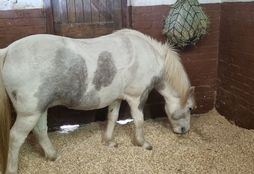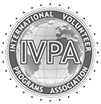Highlights
- Bring happiness to the lives of people with severe disabilities, especially children.
- You will not only get to know the riders and watch their improvement, but you will also actively contribute towards them getting better.
- Bond with the therapy horses, take good care of them and help at the stables.
- Groom and tack the horses in preparation for therapy lessons.
- Spend lots of time outside walking the horses and riders.
- Get personal support from the volunteer coordinator and staff on site.
- Make new friends from all over the world.
- Experience amazing tours and adventures in and around Cape Town.
- Half-day option: learn English in the morning and volunteer in the afternoon.
Project information
Participants are taught by qualified Riding for the Disabled (RDA) instructors. They are assisted by a group of instructors and a team of volunteers.
The project currently delivers free horse riding lessons to approximately 180 children, from the age of 7, and adults living with disabilities from 13 special-needs schools in the Western Cape. The demand still always exceeds the supply but over 9500 children, families, carers and surrounding communities have benefited from the project.
As many as 75% of the riders are from previously disadvantaged backgrounds. All participants benefit physically from the many positive aspects, that riding brings, including psycho-social benefits, self-esteem, and competing with peers on an equal footing.
Your role
Local and international volunteers have an important and responsible job at the project. Without them the organisation cannot function. At the same time, it is an incredibly rewarding experience. Training is provided and it is not necessary to have prior knowledge of horses or disabilities.
Full-day volunteers:
Monday – Thursday, 8:30 -17:00, Fridays, 8:30 - 15:30
Afternoon-only volunteers
Participate in the afternoon activities from Monday – Thursday, 14:00 – 17:00
Possible tasks:
Basic stable routine & maintenance starts at 8:30 – 12:30 and includes:
- grooming and tacking horses an hour before the first lesson starts
- daily feeding of the horses
- cleaning stalls
- replenishing bedding
- maintaining a clean and safe stable environment
- grounds keeping and repairs
- horse exercise and training to ensure they are fit for therapeutic riding
Morning lessons start at 9:30.
Volunteers will generally assist with these lessons where necessary, such as:
- helping riders with disabilities to prepare for their sessions, including putting on helmets and ensuring they are comfortable.
- providing emotional support and encouragement to riders during their sessions.
There are two functions that a volunteer can undertake:
- leader: they are in charge of their horses and this is their sole responsibility. If there are no side-walkers, leaders will keep an eye on the progress of the rider. However, they are not there to teach the rider.
- side-walker: they act as “bridges” between the rider and the instructor. They are there to relax the rider, to reinforce what the instructor is asking them to do, to give support, to react in an emergency, and to build up a close relationship with the rider.
It is important to note that this description serves as an example only. The daily tasks and challenges depend on the volunteer and the work that needs to be done. The final job description can therefore vary substantially from the above.
This project can be emotionally draining. It is important that you are aware of this before applying for this project. We will assist you during your stay to make sure that you are coping with the experience, but you need to be mentally prepared to be open to the challenge.
Accommodation
You will live at the Volunteer House. It is a private house in an upmarket residential area with single beds and twin bedrooms. Volunteers are accommodated in twin bedrooms but may upgrade to single rooms upon request. There are 4 bathrooms to share, a communal kitchen, a dining room, a lounge with TV and DVD player and a beautiful garden with a swimming pool.
Bedding is provided. Towels are not provided.
There is a washing machine at the residence for you to use. It works with tokens which can be purchased for R40 per load.
Please note: The Volunteer House is currently closed for renovations and will be available again from early 2026.
In the meanwhile, volunteers can book the Newlands Residence at no extra cost. This residence is located in the heart of Claremont and offers single rooms with an en-suite bathroom. Bedding and towels are provided and replaced weekly. A communal kitchen, a wellness area with a mini gym, a pool and communal areas guarantee a welcoming atmosphere and plenty of opportunities to meet fellow volunteers. Wi-Fi is included.
A laundry room with washing machines and tumble dryers is available at the cost of R43 per load.
Upgrades to a Homestay or any other accommodation option provided by Good Hope Studies are always possible but come at an additional cost.
Meals
Self-catering except if you choose the Homestay option. The main shopping areas as well as restaurants, pubs, etc. are within walking distance of your accommodation.

